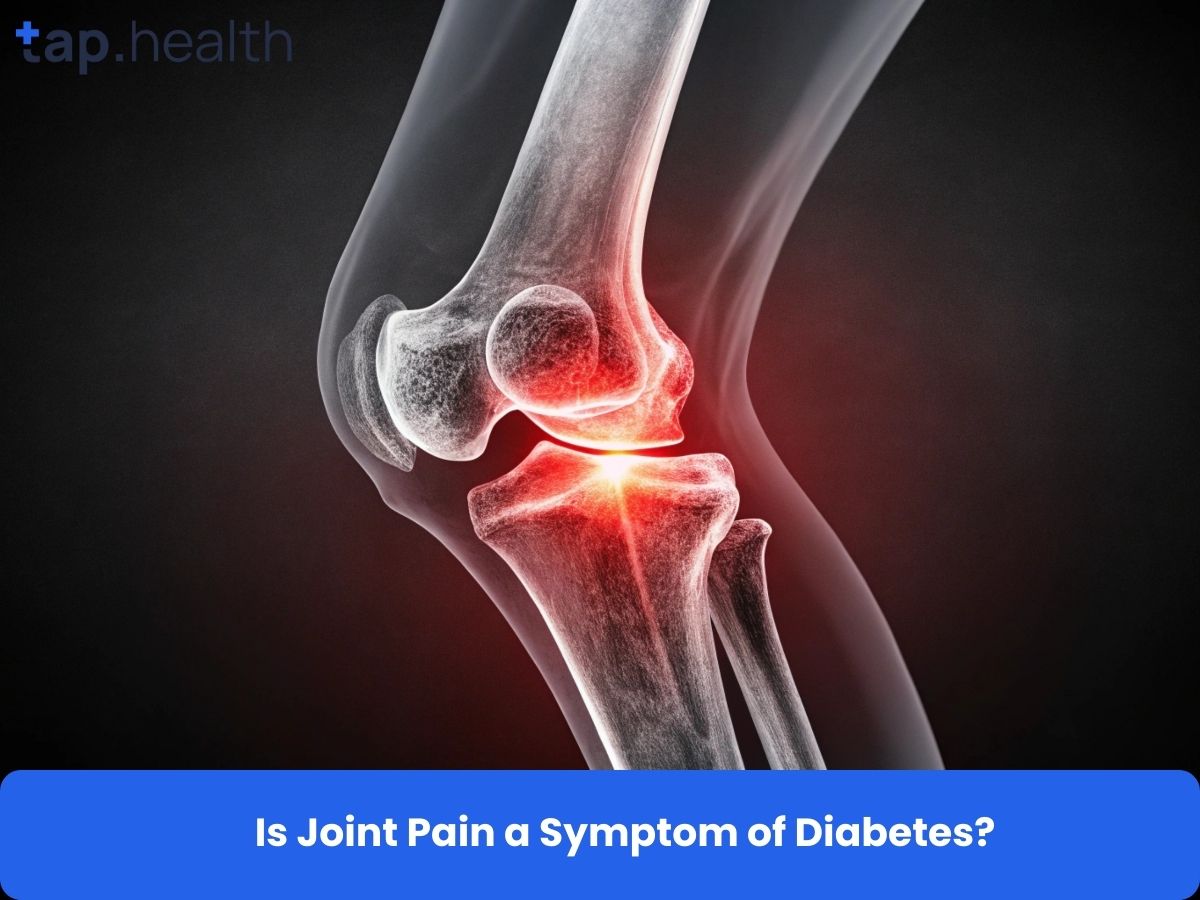Table of Contents
- Metabolic Syndrome: A Comprehensive Research Overview
- Understanding the Link Between Metabolism and Diabetes
- Metabolic Syndrome vs. Diabetes: Key Differences Explained
- Research-Based Strategies for Managing Metabolic Syndrome
- Preventing Diabetes: Insights from Metabolic Syndrome Research
- Frequently Asked Questions
- References
Are you concerned about the growing link between metabolic syndrome and diabetes? You’re not alone! Millions grapple with these intertwined conditions, often without fully understanding the complex relationship. This blog post, focusing on Understanding Metabolic Syndrome and Diabetes: A Research Perspective, delves into the latest scientific findings to shed light on this crucial area. We’ll explore the key factors contributing to both conditions, examine current research on prevention and management, and offer insights into how you can better protect your health. Let’s unravel the science behind these significant health challenges together.
Metabolic Syndrome: A Comprehensive Research Overview
Metabolic syndrome, a cluster of conditions including high blood sugar, excess body fat around the waist, and high blood pressure, poses a significant global health challenge. Its prevalence is particularly concerning in India and other tropical countries, often exacerbated by lifestyle factors and genetic predispositions common in these regions. Understanding the intricate interplay of these factors is crucial for effective management and prevention. The substantial economic burden of diabetes, estimated at $760 billion annually globally, underscores the urgency of addressing metabolic syndrome as a major contributing factor.
Understanding the Risk Factors in Tropical Climates
Several factors contribute to the higher prevalence of metabolic syndrome in tropical regions. Dietary habits, often characterized by high carbohydrate and saturated fat intake, play a significant role. Furthermore, limited access to healthcare and health education in certain areas hinders early detection and intervention. Sedentary lifestyles, coupled with the intense heat in many tropical regions which may limit physical activity, exacerbate the risk. Genetic predisposition and ethnicity also influence susceptibility to metabolic syndrome, highlighting the need for region-specific research and tailored prevention strategies.
Strategies for Prevention and Management
Effective management of metabolic syndrome requires a multi-pronged approach. This includes lifestyle modifications such as adopting a balanced diet rich in fruits, vegetables, and whole grains, increasing physical activity, and maintaining a healthy weight. Regular monitoring of blood sugar, blood pressure, and cholesterol levels is crucial. Early intervention is key to preventing the progression to type 2 diabetes and other serious health complications. For individuals in India and other tropical countries, culturally appropriate dietary guidelines and accessible healthcare programs are vital for successful management. Promoting awareness and encouraging proactive health checks are essential steps in combating this prevalent health issue. Understanding the link between the components of metabolic syndrome is crucial, and a deeper dive into Understanding the Link Between Diabetes and Obesity can provide valuable insights. The impact of diabetes, a frequent consequence of uncontrolled metabolic syndrome, can extend beyond physical health, as highlighted in The Impact of Diabetes on Mental Health.
Understanding the Link Between Metabolism and Diabetes
Metabolic syndrome and diabetes share a complex relationship, often existing as intertwined conditions, particularly prevalent in India and other tropical countries. Understanding this link is crucial for effective prevention and management. The disruption of metabolic processes, including insulin resistance and impaired glucose tolerance, forms the cornerstone of both. This means the body struggles to effectively use insulin, leading to elevated blood sugar levels—a hallmark of diabetes.
The Role of Insulin Resistance
Insulin resistance, a key feature of metabolic syndrome, significantly increases the risk of developing type 2 diabetes. When cells become resistant to insulin’s effects, the pancreas works harder to produce more, eventually leading to its exhaustion. This results in persistently high blood sugar levels, and the development of hyperglycemia, a defining characteristic of diabetes. It’s important to note that a significant portion of the global diabetes population, 61% of whom are aged between 20-64 years, according to the International Diabetes Federation, highlights the growing concern among younger adults. This statistic is particularly relevant in regions like India, where lifestyle changes and genetic predispositions are contributing factors. Furthermore, understanding the impact of diabetes on other organs is crucial, such as its effect on blood flow, as detailed in How Does Diabetes Affect Blood Flow?.
Lifestyle and Regional Considerations
In Indian and tropical countries, specific lifestyle factors exacerbate the risk. Dietary habits rich in refined carbohydrates and saturated fats, coupled with sedentary lifestyles, contribute significantly to insulin resistance and the development of both metabolic syndrome and diabetes. The remaining 39% of people with diabetes are aged 65+ years, according to the IDF, highlighting the long-term health implications and the need for proactive measures across all age groups. Addressing these lifestyle factors through diet modification, increased physical activity, and regular health check-ups is crucial for preventing and managing these conditions. Early detection and intervention can significantly improve long-term health outcomes. The connection between diabetes and other metabolic issues, such as The Link Between Diabetes and Fatty Liver, is also a key area of study.
Metabolic Syndrome vs. Diabetes: Key Differences Explained
Metabolic syndrome and diabetes are often linked, and understanding their distinctions is crucial, especially in regions like India and other tropical countries where these conditions are prevalent. While both involve issues with how the body processes sugar, they differ significantly. Metabolic syndrome is a cluster of conditions – increased waist circumference, high blood pressure, high blood sugar, and abnormal cholesterol or triglyceride levels – that increase the risk of developing type 2 diabetes, heart disease, and stroke. It’s a pre-diabetic state, a warning sign that your body isn’t managing blood sugar effectively. Diabetes, on the other hand, is a chronic metabolic disorder characterized by persistently high blood sugar levels. This hyperglycemia occurs because the body either doesn’t produce enough insulin (type 1 diabetes) or doesn’t use insulin properly (type 2 diabetes). To further understand the nuances of diabetes, you might find our article on Difference between Type 1 and Type 2 Diabetes: Symptoms and Causes – Tap Health helpful.
Understanding the Connection
The key difference lies in the presence of consistently elevated blood glucose. Metabolic syndrome significantly raises your chances of developing type 2 diabetes. Moreover, both conditions share risk factors like obesity, sedentary lifestyle, and unhealthy diet, particularly common in many tropical regions. Managing weight, adopting a healthy lifestyle, and regular check-ups are crucial preventative measures, especially given that diabetes increases the risk of kidney disease, with nearly 30% of those with diabetes developing diabetic nephropathy. This underscores the importance of early detection and management in preventing serious long-term complications. The question of which type of diabetes is “worse” is complex, but Which Diabetes Is Worse: Type 1 or Type 2? Key Comparisons provides a detailed comparison.
Actionable Steps for Prevention
For individuals in India and other tropical countries, incorporating culturally relevant dietary changes and incorporating regular physical activity tailored to the local climate are vital. Consult with healthcare professionals for personalized advice on managing risk factors and preventing the progression from metabolic syndrome to diabetes. Early intervention is key to mitigating the potential health consequences.
Research-Based Strategies for Managing Metabolic Syndrome
Metabolic syndrome, a cluster of conditions increasing the risk of heart disease, stroke, and type 2 diabetes, is a growing concern globally, particularly in India and other tropical countries. Effective management is crucial, and thankfully, research shows significant promise. Up to 80% of Type 2 diabetes cases can be delayed or prevented through lifestyle changes (source). This highlights the power of proactive strategies. For those already managing diabetes, understanding the challenges and solutions specific to aging can be particularly valuable.
Dietary Interventions: A Cornerstone of Management
Dietary modifications form the bedrock of metabolic syndrome management in Indian and tropical contexts. Emphasizing whole grains, fruits, vegetables abundant in these regions, and lean proteins is key. Reducing consumption of processed foods, sugary drinks, and unhealthy fats is equally vital. Traditional Indian diets, rich in spices with potential anti-inflammatory properties, can be adapted for better metabolic health. This is especially important when considering strategies for lowering triglycerides, a key component of metabolic syndrome.
Lifestyle Adjustments for Long-Term Success
Beyond diet, regular physical activity is indispensable. Incorporating culturally relevant activities like yoga, walking, or even brisk household chores can significantly impact metabolic parameters. Managing stress through techniques like meditation or mindfulness is also crucial, as chronic stress exacerbates metabolic dysfunction. Sufficient sleep is another often overlooked element vital for metabolic health.
Seeking Professional Guidance: A Crucial Step
While lifestyle changes are highly effective, seeking professional guidance from doctors and registered dieticians is recommended, particularly in high-risk populations. Tailored advice considering individual needs and cultural preferences ensures better adherence and improved outcomes. Early detection and proactive management are critical, especially given the high prevalence of metabolic syndrome and related conditions in Indian and tropical populations. Don’t hesitate to take control of your health today.
Preventing Diabetes: Insights from Metabolic Syndrome Research
Metabolic syndrome, a cluster of conditions including high blood sugar, abdominal obesity, high blood pressure, and abnormal cholesterol levels, significantly increases the risk of type 2 diabetes. Understanding this relationship is crucial, especially in Indian and tropical countries where diabetes prevalence is alarmingly high. Research highlights the intricate connection between these conditions, emphasizing the urgent need for preventative measures. For example, studies show a strong correlation between abdominal obesity and insulin resistance, a precursor to diabetes. Effective weight management through diet and exercise becomes paramount in combating this risk.
Lifestyle Modifications for Diabetes Prevention
The good news is that many aspects of metabolic syndrome are modifiable. Adopting a healthy lifestyle plays a pivotal role in preventing diabetes. This includes incorporating a balanced diet rich in fruits, vegetables, and whole grains, while limiting processed foods, sugary drinks, and unhealthy fats. Regular physical activity, even moderate exercise like brisk walking for 30 minutes most days of the week, is essential. Furthermore, managing stress through techniques like yoga and meditation can contribute significantly to overall health and reduce the risk of developing metabolic syndrome. Once diagnosed, it’s crucial to understand how to prevent long-term complications of diabetes to maintain a good quality of life.
Addressing Smoking and Cardiovascular Risk
It’s crucial to acknowledge the added risk faced by smokers. Research shows smokers with diabetes face a doubled mortality rate due to cardiovascular issues. Quitting smoking is not only vital for overall health but significantly reduces the risk of complications related to diabetes and metabolic syndrome. In India and other tropical regions, where tobacco use remains prevalent, targeted public health campaigns emphasizing the link between smoking, diabetes, and cardiovascular disease are urgently needed. This is especially important given the existing high burden of diabetes in these regions. Moreover, advancements in technology are continuously improving diabetes management. To learn more about these developments, check out how new technological advances can improve diabetes lifestyle.
Taking Action Today
Prioritizing preventative healthcare is essential. Regular health check-ups, including blood glucose and lipid profile tests, are crucial for early detection and management of metabolic syndrome. By adopting these lifestyle changes and seeking professional guidance, individuals in Indian and tropical countries can significantly reduce their risk of developing type 2 diabetes and improve their overall health outcomes. Consult your doctor or a qualified healthcare professional to create a personalized plan tailored to your specific needs and risk factors.
Frequently Asked Questions on metabolic syndrome
Q1. What is metabolic syndrome?
Metabolic syndrome is a cluster of conditions, including high blood sugar, abdominal obesity, and high blood pressure, that significantly increases your risk for type 2 diabetes and other health problems.
Q2. What causes metabolic syndrome?
Metabolic syndrome is largely caused by lifestyle factors such as unhealthy diets high in carbohydrates and saturated fats, sedentary lifestyles, and, to some extent, genetic predispositions.
Q3. How can I reduce my risk of metabolic syndrome or manage it if I have it?
Effective management involves lifestyle modifications such as adopting a balanced diet, increasing physical activity, managing your weight, and undergoing regular health monitoring. Early intervention is crucial.
Q4. Why is metabolic syndrome a major concern, especially in tropical countries like India?
The high prevalence of metabolic syndrome in countries like India contributes to a substantial economic burden due to its strong link with diabetes and other related health issues. Culturally appropriate strategies and accessible healthcare are vital in addressing this.
Q5. What kind of treatment or approach is needed to address metabolic syndrome?
Addressing metabolic syndrome requires a multi-pronged approach encompassing dietary changes, increased physical activity, stress management, and regular health checks.
References
- A Practical Guide to Integrated Type 2 Diabetes Care: https://www.hse.ie/eng/services/list/2/primarycare/east-coast-diabetes-service/management-of-type-2-diabetes/diabetes-and-pregnancy/icgp-guide-to-integrated-type-2.pdf
- Diabetes Mellitus: Understanding the Disease, Its Diagnosis, and Management Strategies in Present Scenario: https://www.ajol.info/index.php/ajbr/article/view/283152/266731



